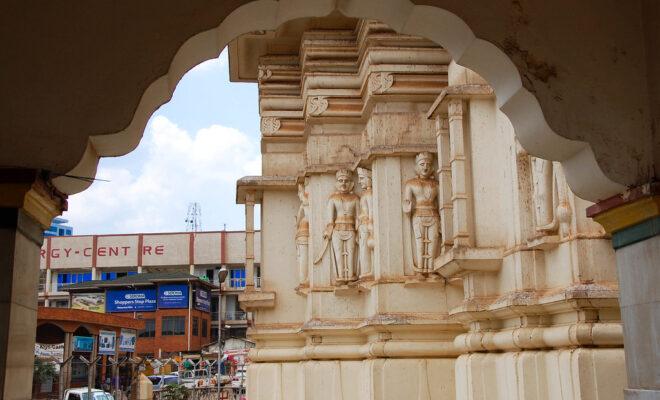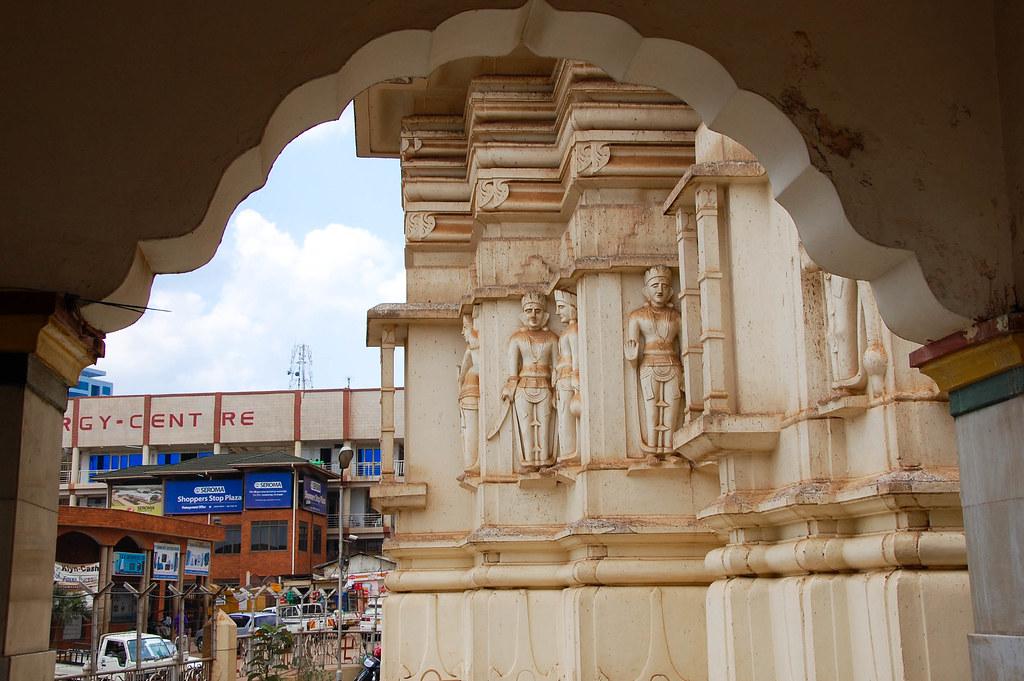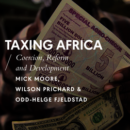It’s time to confront anti-Blackness in Asian-African communities

For decades, Asian-Africans were both victims and agents of colonial racism. This history still reverberates today.

A Hindu temple in Kampala, Uganda. Credit: Lauren Parnell Marino.
When I reflect about being Asian-African, I often think to a fight I had as a five-year-old at school in Zambia. I remember arguing with another girl and explaining to my teacher that “she called me an Indian.” I recall how the teacher looked down at my distraught face before responding, “you are”. “No,” I replied in tears, “I’m Zambian…”
The history of Asian-Africans – and how they have fit into African societies – is complex and varied. Between the 1860s and 1890s, the British Empire brought thousands of indentured labourers from its colony in the sub-continent to its colonies in Southern and East Africa. In the following decades, many other South Asians followed as merchants. And then, as the British partitioned the sub-continent along religious lines in the 1940s, thousands more fled the impending chaos, some to Africa.
Once on the continent, the Asian population largely occupied a kind of middle position in which they were both victims and agents of colonial racism. In East Africa, many functioned as a subordinate ruling class, employed by the colonial police and administrators as part of a divide and rule strategy. In the cruel segregationist system of Northern Rhodesia (now Zambia), they similarly inhabited a level between white people at the top and Black people at the bottom. In a variety of places, Asians enjoyed success in business during the colonial period and gained significant control of the economy.
At the same time, many Asian communities tried hard to preserve their home cultures, a trait of many migrant groups. Visiting Kenya in the 1970s, Indo-Trinidadian writer V.S. Naipaul commented that “the Indian in East Africa brought India with him and kept it inviolate”. Many Asian communities were perceived to be exclusive, living separately and rarely mixing outside of their own group.
In the 1970s and 1980s, many of these dynamics contributed to widespread anti-Asian sentiment in East Africa. In 1972, Ugandan dictator Idi Amin ordered all Asians to leave the country within 90 days, causing 80,000 to flee. In the 1980s, Asian businesses were attacked and some women were raped in the chaos that followed an unsuccessful coup attempt in Kenya. And around the same time in Tanzania, anti-Asian feeling spurred a programme of nationalisation.
Marrying up
This colonial and post-colonial history continues to reverberate today. Within Asian-African communities, many older generations hold on to bitter memories of persecution. As scholar Mahmood Mamdani reflected on returning to Uganda after the overthrow of Amin: “Even though I had come home, in the eyes of those who did not know me, I would be a foreigner. I knew I would never be able to take ‘home’ for granted.”
At the same time, many Asian-Africans have internalised the white supremacy of the colonial era and the belief that being closer to whiteness offers more opportunities and privilege. Although the community no longer has the same economic and political influence it had during colonial times and first few decades proceeding it, anti-Black racism still plays out in various forms. It can be seen from the discriminatory ways in which some Asian-Africans treat Black employees, to widely held negative views towards intermarriage. I have experienced disapproval for being in a relationship with a Black man much as my aunt did for marrying a “coloured” man (the crude colonial term for people of mixed race) in the 1970s. Marrying a white person is still regarded by many as “marrying up”.
Almost 30 years ago, Mira Nahir’s film Mississippi Masala attempted to create a wider conversation around this issue with its rare depiction of an interactional relationship between a Black man and Asian-African woman. Writer Mayuku Sen observed that: “Nair parsed the anti-Blackness endemic to the South Asian diaspora with an honesty that public discourse on the topic has rarely, to this day, broached.”
Anti-Blackness also manifests internally in the form of colourism. Having a lighter skin is valued in many Asian communities, leading to the sales of skin lightening creams, the dominance of lighter-skinned people in the media and even skin tone filters on dating websites.
Young change
Some things are changing, albeit slowly. Interracial relationships between Asian-Africans and Black Africans are gradually becoming more common among younger generations. Young people are also increasingly growing up in mixed environments where class is a more important dividing factor than race.
I am still regularly interrogated about my Zambian identity and reliving the fight I had as a five-year-old. But there are now more conversations exploring race and what it means to embrace multiculturalism. We are seeing more examples like rap duo Young Cardamon, an Asian Ugandan, and HAB, a Ugandan of Nubian descent. The two men rap in six different languages – including Luganda, Hindi and Nubi – and confront social issues in their music such as racism and diversity. There have also been some political strides. In 2017, Kenyan Asians were officially recognised as Kenya’s 44th tribe, hailed by some as a step towards more inclusion.
Yet there is still a long way to go. Anti-Black racism and the Asian-African community’s long history of facilitating colonial racism still resonates. That is why the global protests ignited by the brutal murder of George Floyd should be a wakeup call for all Asian-Africans too. We must interrogate and root out our own racism. We must listen to Black communities about the prejudice they experience, challenge our own biases, and change our individual behaviours. It is long overdue that we better understand and dismantle our legacy of white supremacy and confront racism close to home.







This is a good article. A much bigger conversation is required. It is useful capture both sides of the story in order to have a realistic analysis. As the writer rightly points out. The problem is not on one side. “…many Asian-Africans have internalised the white supremacy of the colonial era and the belief that being closer to whiteness offers more opportunities and privilege.” I will add that an additional problem arises from the Asian caste system, where darker skinned people are looked down on.
Many Asian-Africans do not want to admit is that they have racist attitudes towards Africans and some feel it is their duty to lecture or shout at them.
There are several stories of how Asian- Africans have discriminated against darker skinned Africans or belittled them. A friend once told me that he attended a primary school where, the Asian headmaster addressed them as “donkeys” every morning. As recent as last year, there was talk in London, of how an Asian African leader of a human rights organization purged on darker skinned Africans.
It will take a while to change attitudes and perceptions on both sides . This is a good start.
This is a really great piece. I observed the same dynamic in West Africa, but the offenders are Lebanese. I’m African American, and I’m continually hurt and amazed by all of it.
chloronique https://chloroquineorigin.com/# hydroxycloroquine
https://cialiswithdapoxetine.com/ cialis generic